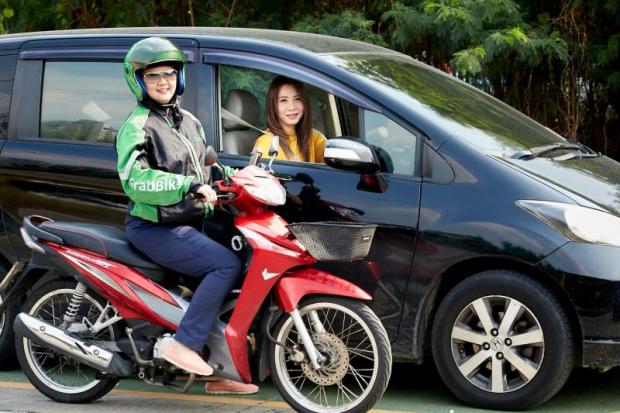
Grab Thailand, the local operating unit of the Singapore-based startup, has high hopes a new government will finally legalise the ride-hailing business after years of operating in the country.
Thailand is the last country in Asean where hailing a taxi from drivers without commercial licences via mobile apps is illegal, apart from Laos where no such service is available. Despite this legal impediment, Grab has thrived in Thailand, but claims its illegal status stymies its growth.
The company aims to expand its business into insurance and e-wallets in the second half this year, as well as adding its Grab Food delivery service in 16 more provinces.
Grab Holding Inc recently announced it secured US$1.46 billion from investors, gathering a total of over $4.5 billion so far in Series H round funding. It expects to reach $6.5 billion by year-end.
"If a new government can be formed, we expect the ride-hailing business will be fully legalised, unlocking its full potential this year," said Tarin Thaniyavarn, country head of Grab Thailand.
During the election, most major political parties appeared supportive of legalising ride-hailing, and users are eager to continue with the services.
"This is the best time for change, otherwise it may take longer to make it happen," Mr Tarin said.
He expects legalisation will allow the business to grow by at least 3-4 times in one year. The ride-hailing business supports the transit infrastructure in second-tier cities with less than 100 taxi drivers, said Mr Tarin.
For example, the MotoGP in Buri Ram last year was held for eight days and saw a massive influx of spectators, too many for the local fleet of only 15 taxis to handle. Grab introduced 220 additional drivers in the city who made around 600,000 baht during the event.
Grab has also registered as a local firm, which means it pays taxes and increases drivers' revenue opportunities. Its drivers have public driving licences.
He said last year all of its services combined more than doubled, with the main driver being GrabFood, which grew by 40 times in 2018.
Market research firm Kantar reported in February GrabFood is the most frequently used app for food delivery in Thailand, and 44% of consumers voted GrabFood as the most used such service in Thailand, followed by Line Man (40%) and FoodPanda (13%).
To increase the momentum of its food delivery service, the company plans to expand GrabFood from three to 16 provinces by year-end, specifically in tourist areas and universities. Recently it already added more restaurants from Central Group to its service.
The company will focus on an online to offline strategy to bring more sales and visitors to Central Group, a local shareholder in Grab. In April, Grab and Central launched a promotional campaign together worth 1.8 billion baht.
Mr Tarin said Grab already received approval from the regulator to obtain an insurance broker licence and e-wallet licence, and it is able to open new services this quarter.
Under its "open platform" strategy, Grab will select partners to provide insurance services for customers on its platform in a bid to build what it calls a SuperApp.
For its e-wallet, Grab will collaborate with Kasikornbank to offer the service, aiming to retain repeat customers.
He said Grab is committed to Thailand for the long term, hoping to expand its service offerings by collaborating with more cross-sector businesses in retail and banks to strengthen its SuperApp.
With the introduction of Go-Jek, Grab's main Southeast Asian competitor, competition in ride-hailing and food delivery is fierce.
Grab continues to offer drivers perks to maintain loyalty like free accident insurance, lower rates on health insurance, a smartphone instalment plan and discounts on fuel.
Grab in Thailand has a few hundred thousand drivers, including several tens of thousand on Grab Win (Motorbike Win).
According to a Google-Temasek study, the gross merchandise value of online transport and food delivery service in Thailand is expected to reach $4 billion by 2025, equal to Singapore and behind only Indonesia.